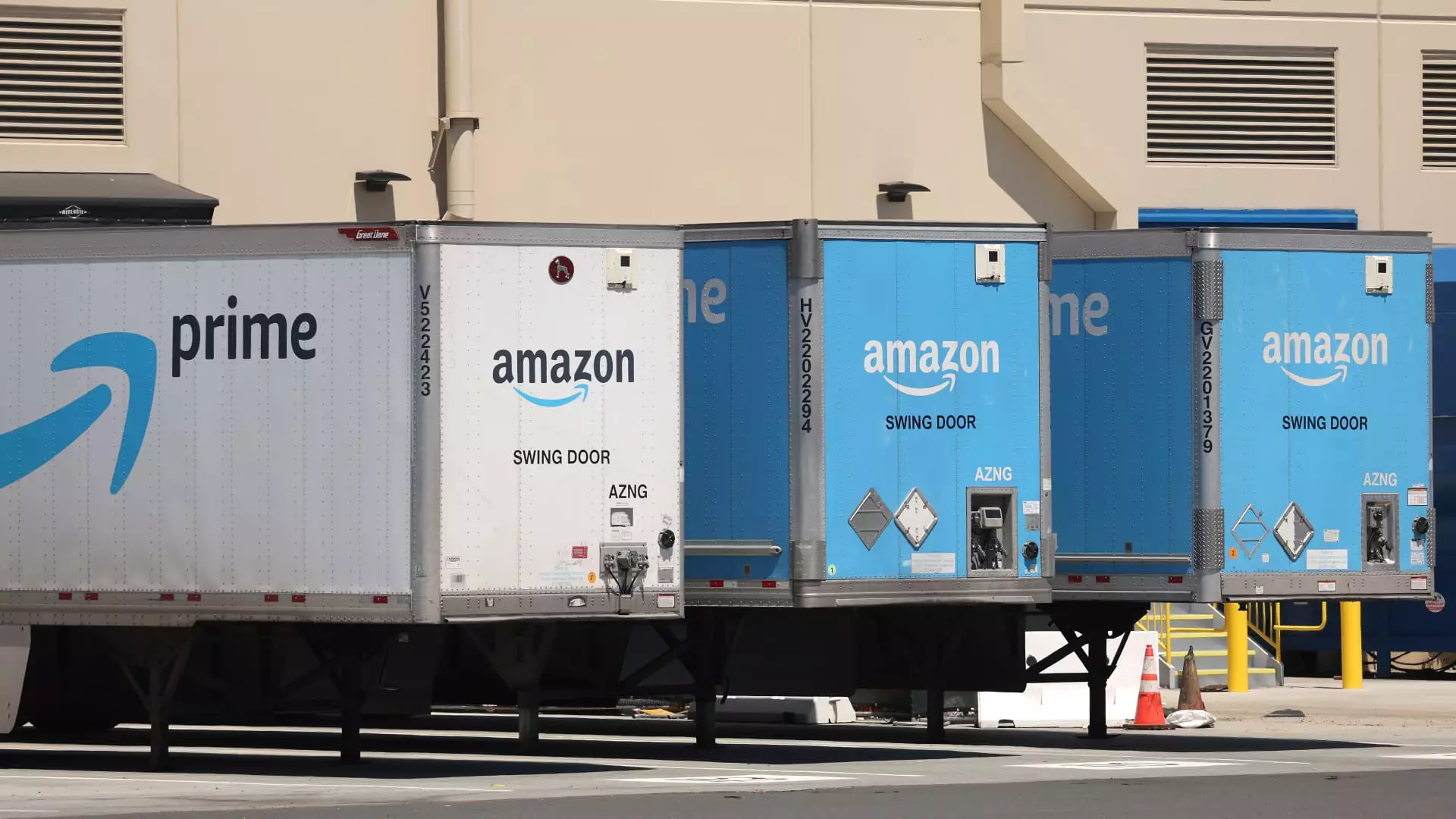In a disconcerting revelation this past Tuesday, the Department of Justice (DOJ) charged an Armenian organized crime group with executing a staggering $83 million cargo theft scheme against Amazon. This story encapsulates a disturbing trend in contemporary retail—a chilling reminder that while we revel in technological advancements and convenience, a dark underbelly of criminal activity persists, preying on the very frameworks that support our modern economy. The audacity of these criminals, masquerading as legitimate truck drivers, speaks volumes about the vulnerabilities inherent in our supply chains.
Amazon: A E-Commerce Giant Caught in Crosshairs
The DOJ’s complaint laid bare the cunning methods employed by these alleged fraudsters since at least 2021. They cleverly orchestrated an elaborate scheme across California, pilfering truckloads of consumer goods that ranged from smart TVs to air fryers—items emblematic of a consumer-driven society that thrives on convenience. While Amazon enjoys being at the forefront of e-commerce, the company faces significant challenges as reports of cargo theft cast a shadow on its operational integrity. The statement that “Amazon is plagued by recurring thefts” is not just a mere observation; it’s a harbinger of a systemic issue that demands urgent scrutiny and action.
Despite Amazon’s efforts to bolster security and track down illicit activities, the issue of cargo theft continues to mushroom, with estimates suggesting losses reaching a staggering $1 billion annually across the retail sector. The unfortunate truth is that when companies as formidable as Amazon struggle to contain such losses, it reveals a gaping hole in our logistics frameworks—one that also leaves smaller retailers even more vulnerable.
The Network of Deceit and Greed
What sets this crime ring apart, according to the DOJ, is its network of four transport carriers—AK Transportation, NBA Holdings, Belman Transport, and Markos Transportation—who obtained contracts through Amazon Relay, a platform intended for legitimate truckers. Instead of completing their designated routes, these so-called carriers artfully siphoned off profits by diverting from their assigned deliveries. This is more than just a brazen heist; it’s an indication of deep-rooted systemic exploitation where deception thrives and integrity falters.
The complexity of the operation is alarming—these thieves didn’t just swipe goods; they meticulously planned how to resell or gift these items while appearing innocuous. They even managed to evade detection by delivering these stolen trinkets days after initial deadlines, demonstrating a calculated disdain for both Amazon and their own responsibilities. The DOJ’s findings, which included evidence like photos and videos documenting warehouses filled with stolen goods, underscore the disturbing lengths to which these individuals went to profit from deceit.
The Bigger Picture: A Retail Crisis?
Cargo theft does not solely impact Amazon; it’s part of a larger endemic issue affecting retailers nationwide. With many third-party merchants caught in the crossfire, the narrative complicates. These merchants, potentially innocent victims in this web of crime, have been suspended by Amazon under the assumption they were selling stolen goods. This raises a broader question: how do we protect honest businesses from being collateral damage in a world rife with scams?
As the DOJ charges roll out, they paint a picture of a serious criminal operation, intertwined with alleged crimes such as attempted murder and illegal firearm possession. This is no mere theft; it’s interlaced with a narrative of violence and intimidation that screams for more robust societal interventions. The implications of such organized crime extend beyond economic losses—they deepen societal fears and challenge the very essence of law and order.
A Call for More Avenues of Protection
As consumers, we must be mindful of this landscape while also advocating for comprehensive reforms in retail security protocols. Companies like Amazon are not impervious to exploitation, and as they grapple with crippling losses, policymakers must rally behind the idea that prevention and protection against cargo theft should be non-negotiable. Conclusively, the tale of the $83 million theft masterfully illustrates that while retail environments evolve, so too must our resilience and capabilities to combat the nasty undercurrents of criminality that aim to undermine them.


Leave a Reply